Parallel and Soft Representations of Climate Change: A Review of Astrid Bracke’s Climate Crisis and the 21st Century British Novel
Elizabeth Callaway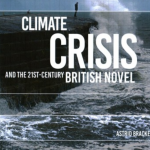
Elizabeth Callaway reviews Astrid Bracke's Climate Crisis and the 21st Century British Novel, which she uses as a jumping off point to explore the possibilities of a "soft" representation of climate in realist literary fiction, in particular Zadie Smith's NW.
Many Lives to Live
Virginia Kuhn, Betsy Sullivan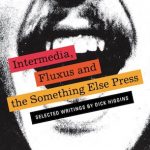
This review of Intermedia, Fluxus and the Something Else Press: Selected Writings by Dick Higgins, co-edited by Steve Clay and Ken Friedman, is itself a collaboration between Virginia Kuhn and Betsy Sullivan. Both approaches, to the review and the book here under consideration, capture the importance of community in creating and sustaining the art of Intermedia, Fluxus, and the Something Else Press.
Digital Writing: Philosophical and Pedagogical Issues
Serge Bouchardon, Victor Petit
Bouchardon and Petit defend the concept of digital writing and the teaching thereof. We can accept that digital writing exists, with its specific properties and tensions, but can it be taught? Specifically, the pedagogical dimension of what is known as "digital" writing, the authors argue, would do well to follow a study on the relationship between writing and computer science that was sponsored by the Picardy region : PRECIP, PRatiques d'ÉCriture Interactive en Picardie (interactive writing practices in Picardy).
Hard Days Nights in the Anthropocene
Joan Retallack
Exploring the interaction of poetics and language with the discourse of the Anthropocene (through etymologies of various ecological ages, or notions of the “survival of the fittest” and embodiment), Retallack combines poetry and prose to occasionally suspend the essay genre into a reflective and creative endeavour, attempting to encompass the larger cultural efforts of “poets, scientists, philosophers, visual and performance artists, composers of every kind [who are] working on an interconnected project” of ecopoetics.
This reprinted essay, first published in Angela Hume and Gillian Osborne's edited collection Ecopoetics: Essays in the Field (Iowa UP, 2018), addresses the major themes of – and suggests the possibility of a vital conversation between – two forthcoming ebr gatherings: 'Essayism', edited by Jason Childs and Joseph Tabbi, and 'Natural Media', edited by Lisa Swanstrom and Eric Dean Rasmussen.
Image: Ship of Fools in Flames, c. 1450; possibly Jheronimus Bosch.
Margulis, Autopoiesis, Gaia
Bruce Clarke
Clarke opens with a biographical account of his own early encounters with the Gaia concept - and a skepticism he shared with the evolutionary thinker Lynn Margulis, Gaia's second author after the British scientist James Lovelock. Neither an organism nor a single cell, and not really an organic or vitalistic entity, Gaia is better understood, according to Margulis, as "an emergent property of interaction among organisms, the spherical planet on which they reside, and an energy source, the sun." The move away from metaphors and New Age vitalisms tethers Gaia theory more tightly to the sciences. Margulis’s work brings Gaia in line with the autopoietic systems theory of Humberto Maturana and Francisco Varela introduced in the 1970s.
This essay is drawn from a preliminary version of several sections from Clarke’s forthcoming book presently entitled Partial Earth: Lynn Margulis, Systems Theory, and the Evolution of Gaia (Fall 2020) and appears here by permission of the University of Minnesota Press.
UpSift: on Johanna Drucker’s DownDrift
David (Jhave) Johnston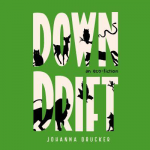
A book-review meditation-musing by David (Jhave) Johnston on a multimodal science fiction by Johanna Drucker. The story is told from the point of view of a distributed organism, Archaea that was discovered in the 1970s. "Structurally similar to bacteria but chemically-distinct," this entity suggests what a born-digital literature for the posthuman era might look like: "an epoch when human-level consciousness drifts down into animals, insects, fish" and many other others.
Mind the gap! 10 gaps for Digital Literature?
Serge Bouchardon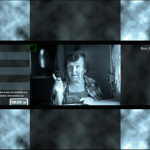
Are digital practices ever going to transform what it means to create, circulate, read and preserve literary works? Bouchardon sets out ten ways that might happen.
<meta name=”title” content=”Humor & Constraint in Electronic Literature”>
Rui Torres
This is an informal essay, not a paper. There are simply too many questions and few answers. The text was assembled from notes from my keynote conference at ELO 2018 in Montreal ("Mind the Gap!"), where I have experimented with a tentative form of performing theory, possibly pushing the limits of Walter Benjamin's desire to write a book made of quotations only. Also, as with all things, this is an incomplete account of the use of humor and constraint in electronic literature. Many examples just simply could not be included here, and it is not my intention to perform close-readings of any of these works either. My goal is simply to create a narrative that signals how humor is related to constraint in art and technology. Perhaps we can prepare an Anthology of Humorous Electronic Literature together? Also, some disambiguation is in order: this is not about computational humor, or the use of computers in humor research, or about jokes concerning computers. And this is also not about OuLiPo or other literary works specifically written under constraint.[footnote]For a discussion about these type of works, read ebr's thread "Writing Under Constraint," edited by Joseph Tabbi at the turn of the millennium. https://electronicbookreview.com/essay/writing-under-constraint/[/footnote]
Third Generation Electronic Literature and Artisanal Interfaces: Resistance in the Materials
Kathi Inman Berens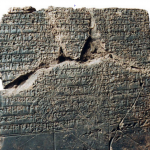
What is the role of hand-crafted literary interfaces in a world of memes and bots? Kathi Inman Berens examines five recent books that address literary interfaces and applies pressure to the definition of "third generation electronic literature," exploring the role of code and intention in e-lit authorship.
Third Generation Electronic Literature
Leonardo Flores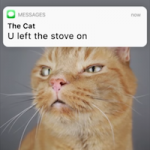
Does literature have a place in a world of ubiquitous computing, massive user bases, and even larger audiences? It might, Flores suggests, but first we must redefine (and differently historicize) literary arts in ways that are not constricted by the print paradigm.
E-Lit’s #1 Hit: Is Instagram Poetry E-literature?
Kathi Inman Berens
Like e-books and so much else in digital commerce, the poetry printed out by Instagram give us back the book - stripping away the social features such as reader comments, nested conversations and responses that make a work "viral," or "spreadable." The content of Instagram poetry, to nobody's surprise, is almost always simplistic, inspirational, and emotional. What it spreads. like any other social media, is indistinguishable from from the surveillance infrastructure of digital metadata that allows algorithms to "read" the reader (who is left in the dark). Kathi Inman Berens in this essay puts forward some ways to change that.
Our Struggle: Reading Karl Ove Knausgård’s Min Kamp
Scott Rettberg, Søren Bro Pold, Joseph Tabbi, Nathan Jones, Chris Ingraham, Kjersti Aarstein
A roundtable discussion hosted by Karl Knausgaard's Alma Mater in Bergen, Norway.
Taxonomographic Metafiction: A review of Anthony Uhlmann’s Saint Antony in His Desert
Martin Paul Eve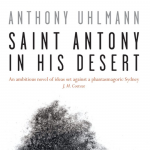
For Martin Eve, Anthony Uhlmann appears to be writing for a very small audience: "those who are interested in contemporary mutations in metafiction, autofiction, and post-postmodern sensibilities."
The Social as the Medium: A Review of Johanna Drucker’s The General Theory of Social Relativity
Manuel Portela
Between the manifesto and the treatise, the text and the paratext, the theoretical and the poetic, the aphoristic and the systematic: Manuel Portela situates the "expressive richness" of Johanna Drucker's "General Theory," and its critique of present social and political formations.
Elpenor: its multiple poetic dimensions
Philippe Bootz, Xavier Hautbois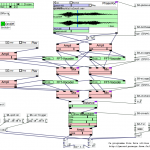
Through performances and readings configured across multiple screens, Phillippe Bootz conveys practices of constrained writing (and interrupted reading) into multiply mediated poetic dimensions.